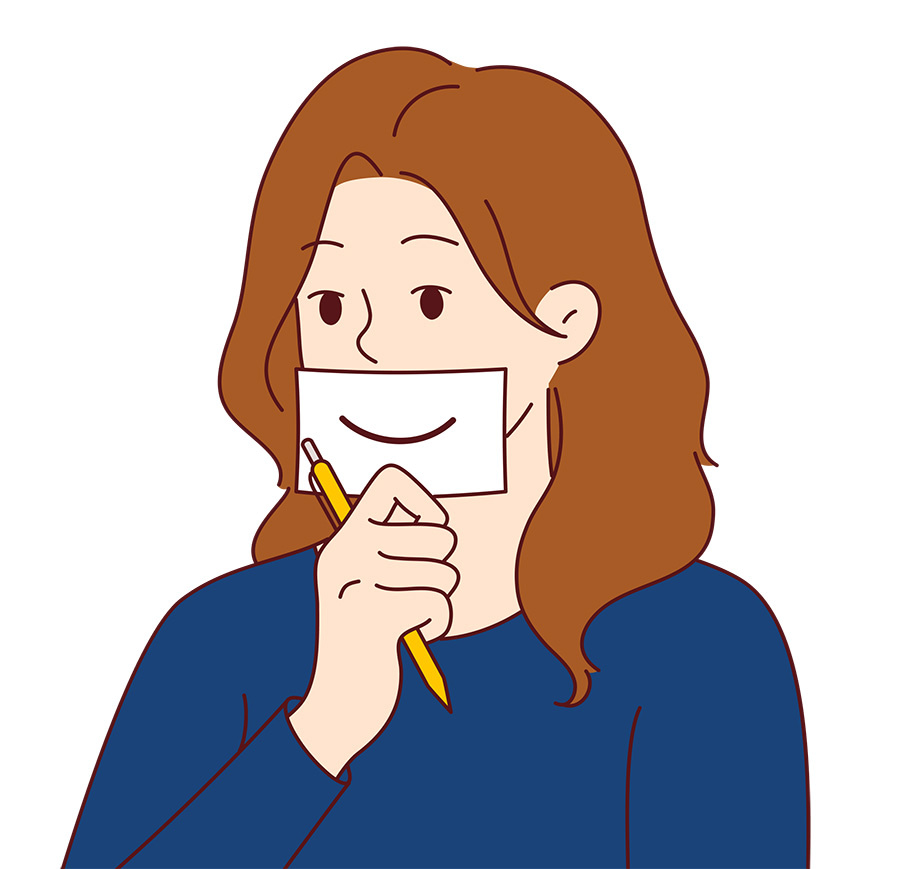Reaction Formation: 5 Signs You’ve Developed This Defense Mechanism
Have you ever found yourself acting in a way that feels completely opposite to how you truly feel deep down? Maybe you’ve shown excessive kindness to someone you secretly dislike, or you’ve convinced yourself you’re completely fine with a situation that actually bothers you. This could be an example of reaction formation, a psychological defense mechanism that helps protect us from uncomfortable thoughts and emotions.
At Mile High Psychiatry, we believe that understanding how defense mechanisms like reaction formation work can empower you to recognize patterns in your behavior and address underlying emotions in healthier ways. Let’s dive into what reaction formation is, how to recognize it, and what you can do if you suspect you’re engaging in it.

What Is Reaction Formation?
Reaction formation is a defense mechanism in which a person unconsciously replaces their true, unwanted feelings or desires with the opposite behavior or attitude. This psychological response often arises when feelings are perceived as socially unacceptable, anxiety-provoking, or inconsistent with one’s self-image. Instead of addressing the true emotions, individuals may overcompensate by adopting behaviors that contradict how they actually feel.

For example:
- Someone struggling with anger toward a colleague might go out of their way to be overly friendly and accommodating.
- A person feeling insecure about their abilities might project extreme confidence and arrogance to mask their self-doubt.
- An individual with repressed feelings of jealousy might become overly complimentary and supportive of the person they envy.
At its core, reaction formation is the mind’s way of dealing with conflict — by turning it into its polar opposite. However, relying on this defense mechanism too often can prevent individuals from truly processing their emotions and can create internal distress over time.
5 Signs You May Be Engaging in Reaction Formation
Recognizing reaction formation in yourself or others can be challenging, as it often happens unconsciously. However, there are some common signs that can indicate you may be using this defense mechanism to cope with difficult emotions:
1. Your Reactions Feel Extreme or Over-the-top
If you find yourself reacting in a way that feels exaggerated — such as being overly positive in situations where frustration or disappointment would be expected — it could be a sign that you’re masking your true feelings.
2. You Struggle with Conflicting Emotions
Do you feel torn between how you act and how you truly feel? If you experience an inner struggle where your external behavior doesn’t align with your internal thoughts, reaction formation might be at play.
3. You’re Overcompensating in Certain Areas
Overcompensating behaviors, like going to extreme lengths to avoid situations or people that trigger uncomfortable feelings, can be a clue. For instance, someone suppressing feelings of attraction may outwardly express disdain or criticism toward the person they are attracted to.
4. You Experience Internal Tension or Anxiety
Since reaction formation involves suppressing true emotions, it can create a sense of emotional tension, stress, or even anxiety. You might feel like you’re constantly working to maintain a façade or avoiding situations that could expose your real feelings.
5. You Avoid Self-reflection
If you find it difficult to honestly explore your emotions and tend to push away thoughts that challenge your current behavior, it could be a sign that reaction formation is influencing your actions.
Why Do People Develop Reaction Formation?
Reaction formation often develops as a way to protect ourselves from emotions that feel threatening or unacceptable. Some common reasons people may use this defense mechanism include:
- Cultural or Social Expectations: When societal norms discourage certain feelings (e.g., jealousy, anger, attraction), individuals may unconsciously adopt opposite behaviors to fit in.
- Childhood Conditioning: If someone grew up in an environment where certain emotions were discouraged or punished, they may have learned to express the opposite feelings as a coping strategy.
- Fear of Vulnerability: Many people use reaction formation to avoid feeling vulnerable or exposed, particularly in relationships or situations where they fear rejection or judgment.
- Self-image Protection: People often want to maintain a positive self-image. If a feeling contradicts how they view themselves (such as feeling anger when they believe they are a kind person), reaction formation can provide temporary relief.

How to Address Reaction Formation
If you suspect that you might be engaging in reaction formation, the good news is that there are ways to address it and develop healthier coping strategies. Here’s how therapy can help:
Identify Your True Emotions
Therapy provides a safe and supportive environment to explore your true thoughts and feelings without judgment. A therapist can help you peel back the layers and understand the emotions you may have been suppressing.
Challenge Negative Thought Patterns
Cognitive-behavioral therapy (CBT) techniques can help you recognize distorted thought patterns and challenge the beliefs that may be driving reaction formation. By reframing your thoughts, you can learn to accept and express your emotions in a healthier way.
Practice Emotional Awareness
Learning to sit with your emotions — whether they’re positive or negative — can help reduce the need for defense mechanisms. Mindfulness techniques and self-reflection exercises can help you become more aware of your feelings and reactions.
Develop Healthier Coping Mechanisms
Instead of suppressing emotions, therapy can help you build healthy coping skills to address challenges directly. This might involve setting boundaries, improving communication, or practicing assertiveness in relationships.
Embrace Self-compassion
Sometimes, people engage in reaction formation because they’re hard on themselves or afraid of judgment. Therapy can help you cultivate self-compassion and accept that all emotions — whether pleasant or uncomfortable — are a normal part of being human.
How Mile High Psychiatry Can Help
If you’ve noticed patterns of behavior that don’t align with how you truly feel, it may be time to explore these experiences with a mental health professional. At Mile High Psychiatry, our compassionate mental health providers can help you gain insight into your emotions, understand your coping mechanisms, and develop healthier ways to manage challenges.
Take the First Step Toward Emotional Honesty
You don’t have to navigate the complexities of your emotions alone. Whether you’re struggling with reaction formation or other defense mechanisms, Mile High Psychiatry is here to provide support and guidance. Contact us today to request an appointment and take the first step toward embracing your true self with confidence and understanding.


